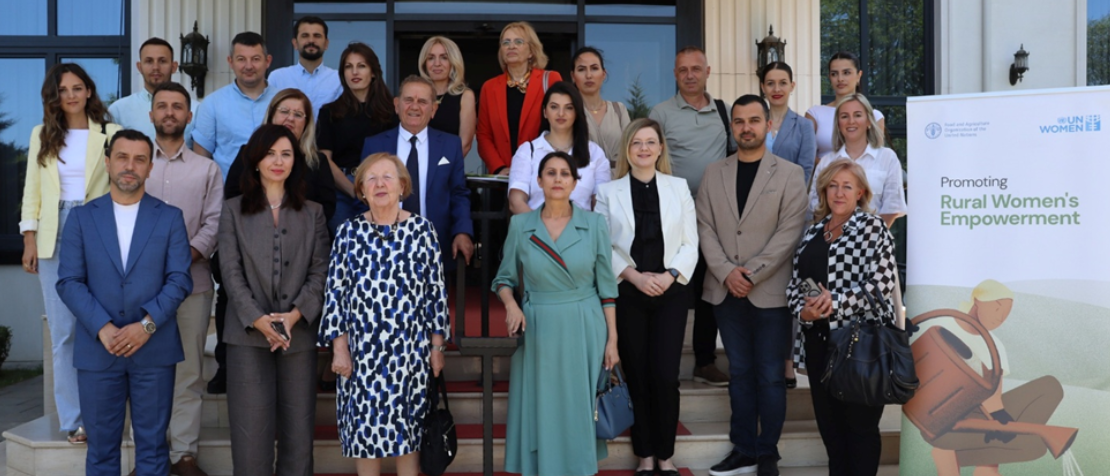Strengthening legal pathways to land and property rights for Kosovan rural women

©FAO
Advancing gender equality and ensuring equitable access to land and property for rural women is essential for sustainable rural development. To promote increased equity in land tenure, a series of legal advisory workshops were recently held in Pristina, Prizren, and Istog, bringing together over 130 licensed notaries and municipal cadastral officials from across Kosovo1.
Three workshops held on 24 and 31 May and 14 June 2025 were organized under a project on promoting rural women’s empowerment, that is jointly implemented by the Food and Agriculture Organization of the United Nations (FAO) and UN Women, with financial support from the Austrian Development Agency (ADA), and in close collaboration with the Notary Chamber of Kosovo.
Despite that the legal framework upholds the principle of equality, women, particularly in rural area, continue to face barriers in exercising their land and property rights. These challenges stem from deeply rooted gender norms, unequal inheritance practices, limited legal literacy, and restricted access to legal aid.
Recognizing the central role that notaries and cadastral officials play as the first point of legal counselling for many citizens, the workshops aimed to enhance their capacity to interpret and apply laws in a gender-responsive manner. Participants revisited key legal provisions on property and inheritance rights, exchanged experiences, and discussed ways to promote co-ownership, raise awareness of legal rights and obligations, and provide gender-sensitive legal counseling.
“Gender equality is a key pillar of FAO’s development approach and is mainstreamed across all programmes and initiatives to ensure inclusive and sustainable growth,” said Naser Krasniqi, FAO Local Team Leader in Kosovo at the workshop held in Istog/Istok. “These workshops directly address one of the most critical challenges faced by rural women. Ensuring equal access to land and property is not just a legal obligation – it is a matter of social justice, economic empowerment, and human dignity.”
Trainer and legal expert Sevdije Morina emphasized the importance of sustained legal education. “Workshops like these are essential for strengthening women’s access to agricultural land. Notaries must be mindful of their role in promoting fairness and legal compliance, especially in inheritance procedures,” she said. “Future workshops and awareness campaigns should target rural communities and involve both women and men, including youth, to foster a culture of equality from an early age.”
The workshop in Pristina also included participation from the National Chamber of Notaries of Albania, fostering cross-border dialogue and reinforcing regional collaboration on gender-responsive land governance.
“This is a complex issue that demands ongoing attention,” noted Fatmir Laçi from the Albanian Notary Chamber.
“Notaries are not only legal professionals but also educators and counselors. Their work can help translate legal rights into lived realities.”

©FAO
The third in a series of workshops with notaries was held in Pristina on 14 June 2025
Kosovar notaries welcomed the initiative and reaffirmed their commitment to advancing women’s legal empowerment. “Having worked within the legal system to uphold women’s rights, I now see even more clearly the power of my role as a notary,” said Kosovare Sopi, a notary from Fushe Kosove/Kosovo Polje. “The legal tools are in place and our job is to ensure that women are informed and empowered to use them.”
Shqipe Ahmeti, a newly licensed notary from Mitrovica e Jugut/Južna Mitrovica, echoed the importance of outreach: “Many women are still unaware of their property rights. Initiatives like this are crucial for building both knowledge and trust.”
By strengthening the capacities of legal professionals and promoting rights-based awareness, these workshops represent a concrete step toward a more inclusive, equitable, and sustainable rural development in Kosovo.
1References to Kosovo shall be understood to be in the context of Security Council resolution 1244 (1999)
